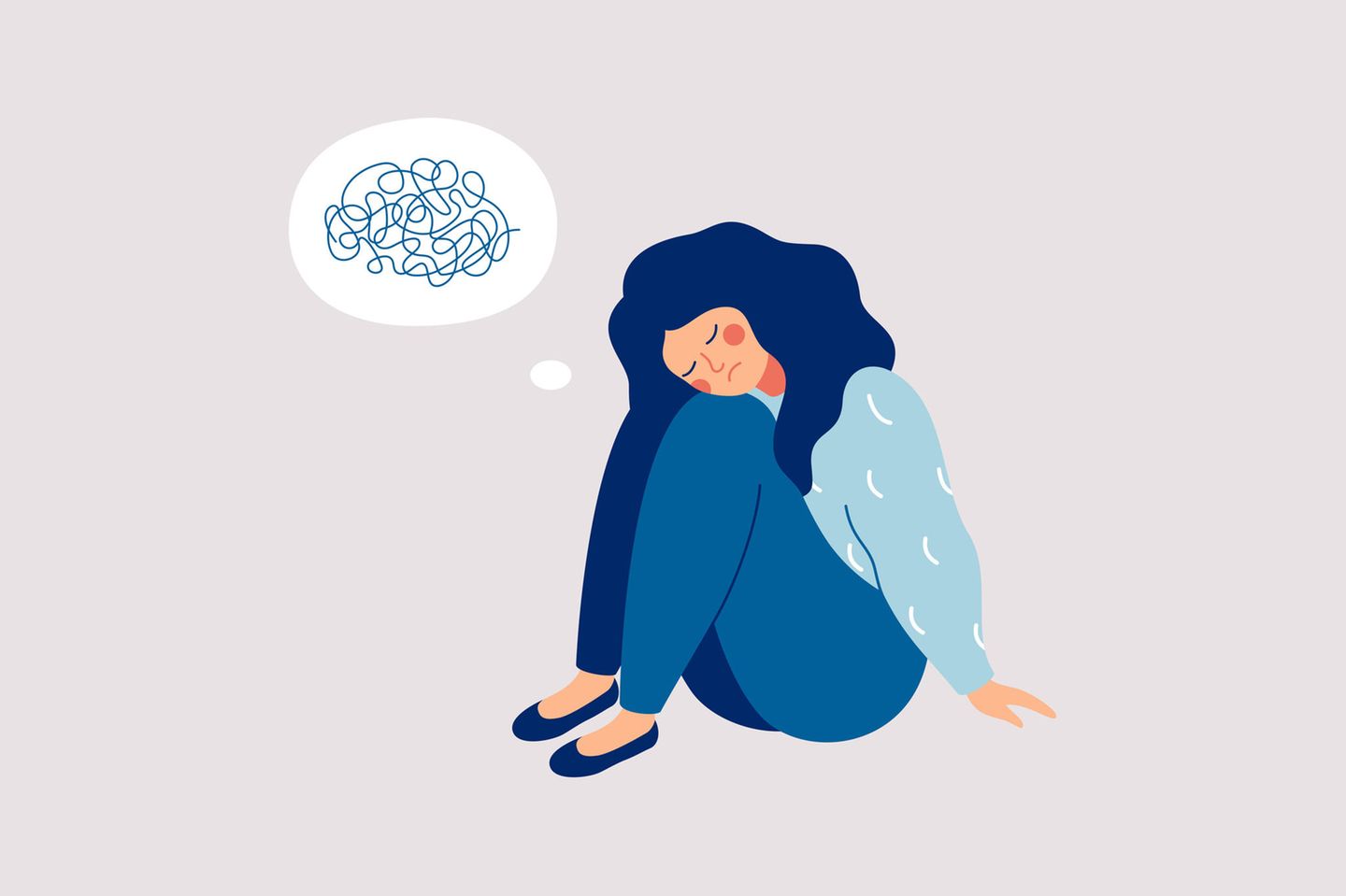psychology
5 thoughts anxious people have every day
© Mary Long / Adobe Stock
Being plagued by anxious thoughts can be very stressful. These sentences and questions in particular often come to mind for people who suffer from fears or anxiety disorders.
Most of us know the feeling of fear. Some feel it more often, others less often. Fear itself is nothing more than an alarm function of our brain that wants to warn us of potential danger. It did this in prehistoric times, for example when we were faced with a saber-toothed tiger.
Today we need fear as a warning signal much less often – how often do we encounter a saber-toothed tiger or something similarly threatening on the way to work? But our brains don’t always understand this. This can cause us to panic in everyday situations, even though there is objectively no imminent danger.
For some people, especially those suffering from anxiety or This happens particularly often if you suffer from anxiety disorders. Your brain constantly reports the alarm condition. These people often have these and similar thoughts – they can be a sign of an anxiety disorder.
Anxious people know these thoughts all too well
1. “Did I say something stupid?”
People who struggle with anxiety are often very self-critical. They have little confidence in themselves and therefore constantly think that what they have to say is stupid or nonsensical. “Are they laughing at me?” is a similar thought that many anxious people are probably familiar with. They automatically assume that they are the cause of laughter or ridicule. They often overestimate how much other people are interested in them – in the best sense.
2. “I definitely can’t do that.”
Fears are often related to low self-esteem. Such people find it difficult to believe in themselves. They assume that they won’t be able to do certain things anyway and that they will fail with every project. It is hardly possible for them to look realistically at themselves and their own abilities. Of course, we can’t be good at everything, and yes, certain things may be beyond our personal abilities. But we can usually do more than an anxious brain would have us believe.
3. “She’s definitely mad at me.”
People who suffer from social anxiety often constantly believe that someone is angry with them or has something wrong with them. They observe those around them very closely and notice even the tiniest changes in the behavior of the other person – and then relate these to themselves. Someone is a little quieter than usual? That’s definitely up to me. Anyone sigh? Surely I did something wrong and the person is now annoyed with me. Of course, the problem could often be solved by simply asking the other person directly whether something is wrong. But this is often not easy for anxious people.
4. “What if I lose my job because of this/my partner leaves me/I become seriously ill?”
A very common habit of people who suffer from anxiety or anxiety disorders is catastrophizing. This means that they assume the worst possible outcome in every situation. Have you made a mistake at work or your boss isn’t responding to a message? She’s probably already preparing to quit. Such irrational fears and dramatizations just as often come into play in relationships or, for example, in relation to one’s own health.
5. “I’m guaranteed to get scared/panic attack again”
Many anxious people assume in advance that a certain situation will probably cause them fear and panic. This can go so far that they completely avoid many actually harmless situations. In the worst case scenario, some anxious people practically stop leaving the house because everything about the outside world frightens them. But often it is the fear of fear that makes life difficult for them. It can also be typical for people with anxiety disorders to constantly ponder why they are so anxious, or even worse: they put themselves down for having these feelings.
Do you recognize one or more of your thoughts in this list? Then it could be helpful to talk to a doctor or therapist about it and see together what could help you to at least partially overcome these fears. Never forget: There is nothing wrong with you, your brain is just overzealous in trying to protect you – and sometimes overshoots the mark.
Sources used: healthline.com, bustle.com, huffingtonpost.com
